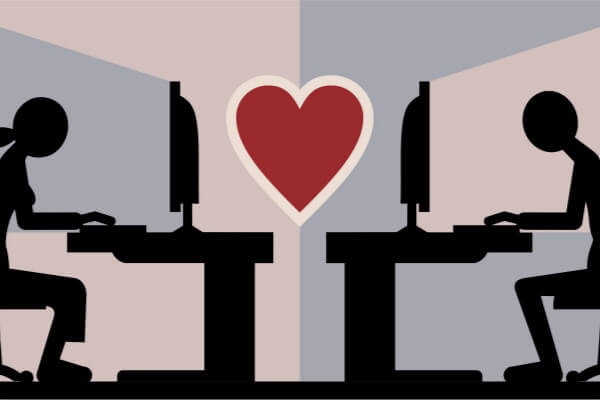Symptoms of Depression

Your doctor will examine your medical history, symptoms of persistent depressive disorder and other aspects to determine the diagnosis. This includes excluding other diseases or medications that may cause similar symptoms.
Feelings of sadness or despair
Depression often comes with feelings of hopelessness and sadness that are difficult to define. These feelings aren’t similar to the blues or the normal reaction to life’s challenges. They can last for weeks and cause disruption to the routine of life and relationships. It is possible that you’ll never be able to recover and stop doing the things that you love.
People who suffer from depression might also experience anger or irritability. It can be difficult for them to interact with other people and may also spend more time at their homes as they feel exhausted or worn out. This fatigue can cause depression to worsen. A little rest can help but some people with depression feel exhausted all the time even after getting enough sleep.
You might lose interest or enthusiasm in things that you used to enjoy, such as social activities, hobbies or sexual activities. This could be a sign of depression, and it’s especially important to seek help if you believe you’re suicidal, or are thinking about harming yourself.
Depression is an extremely serious mental health symptoms of depression illness that affects everyone differently. Your doctor and you collaborate to determine whether or not you suffer from depression, based on the criteria listed in the Diagnostic and Statistical Manual of Mental Disorders (DSM). Your doctor will perform an examination of your body to determine your overall health. If he or she suspects that an underlying illness is the cause of your symptoms, they may order lab tests.
Difficulty concentrating or making decisions
Depression is more serious than bad mood. It is important to see a doctor in order to determine the cause and get treatment. It’s an illness that affects the brain’s chemical, and it can impact your daily life and relationships. It can make it difficult to focus or think clearly and may cause you to lose interest in the things that you normally like. In some instances depression can cause thoughts of suicide.
It’s normal to feel a sense of despair and sadness occasionally however, if you experience them most days for at least two weeks, you could be depressed. Your doctor will determine the cause of depression based on the symptoms you present. He or she will also conduct an examination of your body and lab tests to rule out any other health issues that could be causing these symptoms.
Sometimes, depression can be masked by symptoms that look like anger or aggression, therefore it’s important to see a mental health professional for a diagnosis, even if you’re not angry. A person with depression may be feeling guilty for no reason and blame themselves for things that they have done or said. They may also be unable to making decisions and feel irritable, agitated, or easily triggered into anger. This type of behavior is dangerous and you should seek assistance when it is accompanied by suicidal thoughts.
Loss of interest in or enjoyment from things you used to like
Depression is not the same as sadness that comes from a difficult life event, such as a divorce or death. It can last longer and may include other symptoms such as difficulty thinking or feeling hopelessness. It can affect how you work, sleep and consume food. It can also cause unanswerable pains and aches like stomach or headaches. The symptoms vary from person to individual. Some describe it as feeling of numbness or emptiness and others feel uneasy or anxious. Depression can be treated by taking care of your body, getting enough rest and eating a healthy diet, and implementing stress reduction methods.
There are various kinds of postpartum depression symptoms, including major depressive disorders (also known as clinical depression symptoms depression) or persistent recognizing depressive symptoms disorder. It is important to recognize symptoms of depression so you can seek treatment.
Depression can cause depression, anger and feelings of being unworthy. It can also cause fatigue, sleep issues or excessive sleep, aches and soreness, lack of energy and weight gain, or an feeling of weight gain. It can affect anyone, but typically begins in late adolescence or early adulthood. It can also run in families. Genetic causes, such as chemical differences in the brain, are often linked to depression. Social or environmental factors can also contribute to depression. Relationship problems, substance abuse or other mental conditions such as trauma or abuse, or living in a poverty-stricken area can all contribute to depression.
Oversleeping or having difficulty sleeping
Everyone experiences sadness now and then, but if it’s lasting for weeks or is keeping you from doing the things you love to do It could be depression. Suicidal thoughts can also be a possibility. It is crucial to seek immediate help if are experiencing these thoughts.
Even if they get enough sleep those suffering from depression may feel tired and depressed. They may also have difficulty getting to sleep or waking up too early, or have a longer sleep time than normal. Depression can also trigger changes in appetite, which could lead to weight gain or lose. They may also have headaches, cramps, or an upset stomach.
Other signs of depression are a general sense of worthlessness or guilt, or a sense of hopelessness. It is also possible to lose interest or pleasure in things that they previously enjoyed, such as activities, sports, social activities or spending time with friends and family. The inability to feel pleasure is called anhedonia.
It’s unclear what causes depression, but it is thought to be caused by the chemical in the brain which transmit messages about mood and behavior. It can be triggered through a stressful or challenging life event such as the death or divorce of a beloved. It could also be caused by childhood problems, certain illnesses or medications.
Feelings of guilt or worthlessness
Feelings of guilt and devaluation are common signs of depression. They’re distinct from the normal mood fluctuations that many people experience in response to stressful life events.
If these symptoms continue for more than a few weeks, it’s essential to visit your regular health care provider or a mental health professional. A health care provider can help you understand the symptoms and determine if they’re caused by depression or another condition.
Depression can affect people of all ages races and genders. Depression can trigger physical symptoms, like stomachaches and headaches in some people. Certain people might have a problem with addiction that includes drinking or using drugs. Depression can also cause adolescents and young adults to have thoughts of suicide. If you or someone you know is contemplating suicide, of suicide, it’s critical to seek help immediately.
Treatment options for depression include psychotherapy (also called talk therapy) and antidepressants. Antidepressants come in a variety of forms and all work by altering the way neurotransmitters work in the brain. Your doctor will recommend the one that is best for you. It is important to use it as directed, because stopping the medication can make your symptoms return. If your depression is serious, you may require hospitalization or residential treatment. Your doctor may also recommend electroconvulsive therapy (ECT) or transcranial magnetic stimuli (TMS). The TMS involves passing magnetic coils across the brain to stimulate nerves that regulate mood.
Physical symptoms
Many people who suffer from depression also experience physical symptoms, like fatigue, aches, pains, headaches, or stomach issues. These are very difficult to manage. Research has shown that brain chemicals involved in mood are linked to circuits that control pain and the pathways to it.
If you experience a combination of these symptoms, talk to your doctor about the possibility that they are caused by depression. Depression is a serious disorder that requires professional treatment. It’s normal to feel down sometimes to time, or experience occasional feelings of despair or sadness however if these symptoms are a regular part of your day and last more than 2 weeks, it may be an indication that you suffer from depression.
Other physical symptoms of depression are being tired constantly or experiencing a general low energy level, having trouble concentrating on tasks or avoiding things frequently. Certain people have slower movements and find it harder to master fine motor skills like writing or buttoning their shirt.
Depression can also cause difficulties falling asleep or staying asleep. You might be able to sleep longer or get up earlier than usual. You may feel tired and lethargic even if you’re rested. Some people feel that their appetite has changed and they eat less. Others have a decreased hunger and lose weight.





